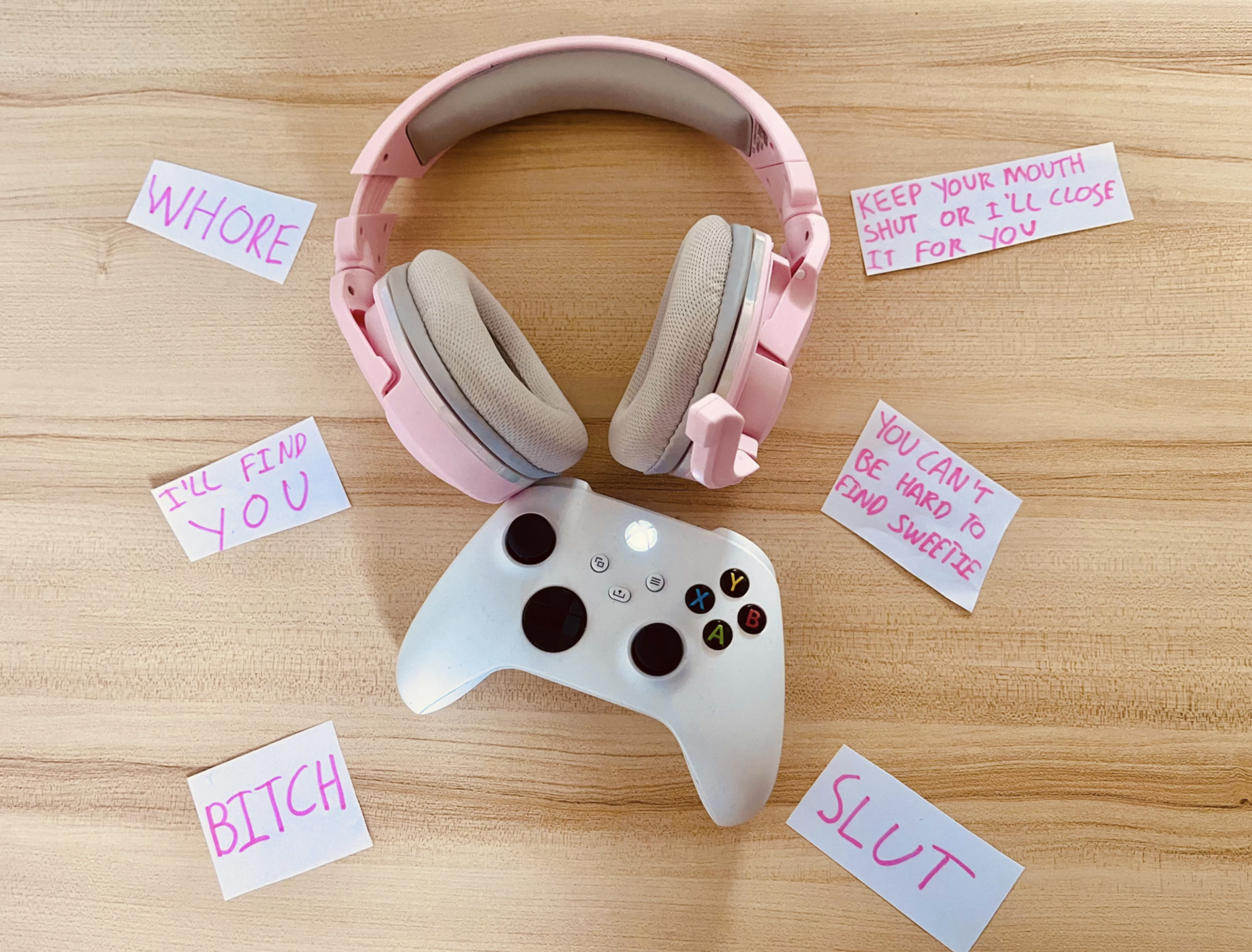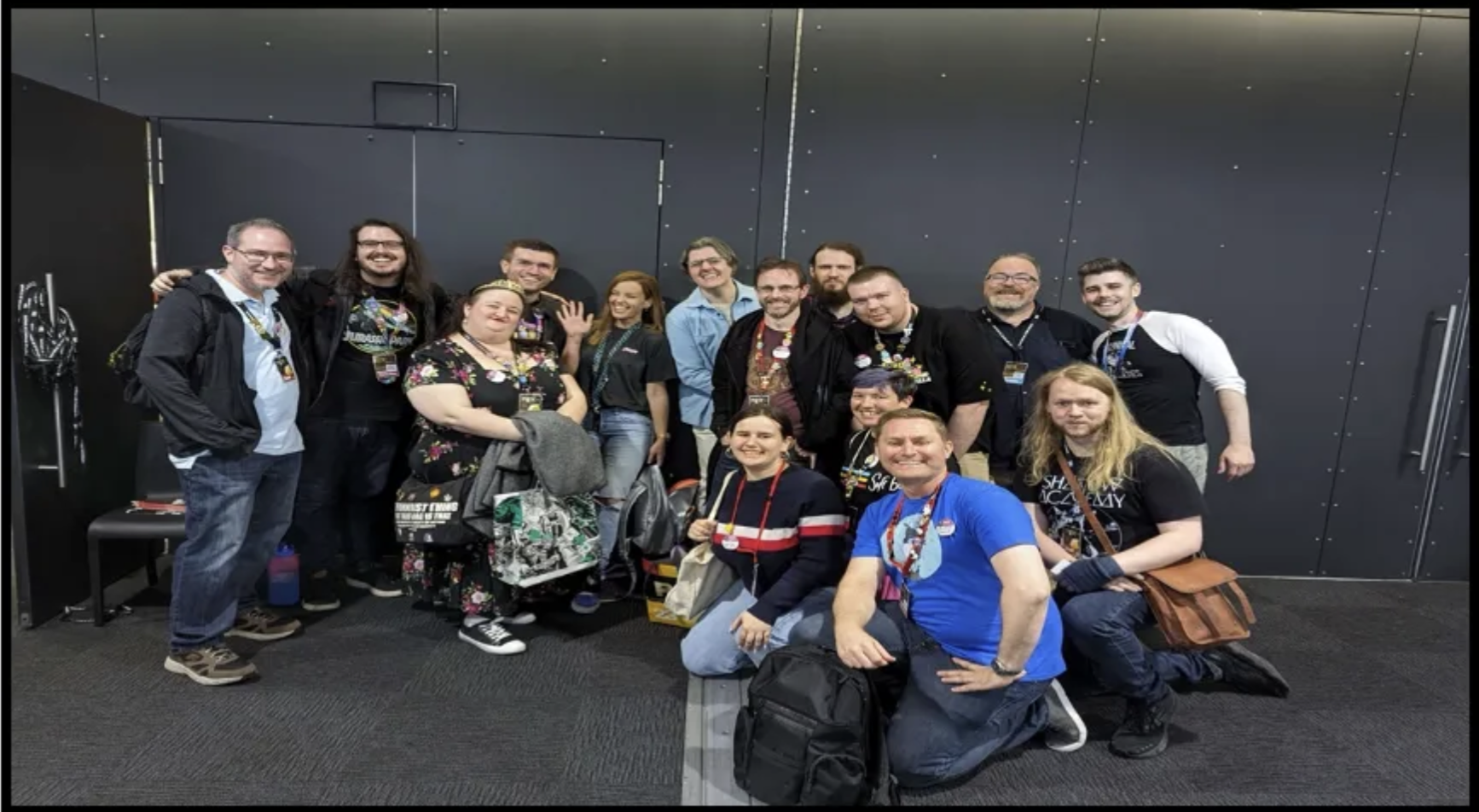Digital Disruptors: Women Breaking Their Silence in the Fight for Online Equality
A 2023 report by Stream Hatchet shows that only 10% of the highest earning Twitch live streamers were women, amid claims by Twitch that women in the live-streaming industry is more prominent than ever, leading women to speak out about their experience in the live-streaming space and change the narrative of who a gamer is.
The 2023 Australia Games report written by Interactive Games and Entertainment Association (IGEA) and Bond University showed that gaming is on the rise across all age demographics, with 81% of Australians calling themselves gamers — almost half of the participants identifying as women.
Gaming is on the rise across all demographics, but especially with women who have been imperative in changing the narrative of who a gamer looks like (Image Credit: Anton)
Even though more women are gaming than ever, a 2023 report by Jessica Clement reveals that globally women only make up 26.9% of users on Twitch.
Many question why there is such a gap; Dr Erin Maclean is a researcher at Griffith University on videogames and gender and argues that “women have always existed in games” but cites visibility as a key issue of why there is such a large gender gap, noting that,
“Gaming culture was founded in male dominated spaces, in institutions of male technocratic privilege.”
She believes that due to this, Twitch plays an imperative role in helping bridge the gap of visibility and exposure in these online spaces.
Women in the gaming world has been controversial at best, and dangerous at worst, with a 2024 report by Bastion Insights unveiling that 85% of Australian women have faced harassment in the online gaming space.
Until we tackle the entrenched misogyny within our gaming spaces, true online equality between men and women will never be possible. (Image Credit: Jaya Lichy)
Someone who is no stranger to the gaming world is Stephanie Bendixsen, as a former Good Game Host and “face” of the Australian gaming industry, Stephanie has seen it all. Although it is safe to say her pathway into this industry is not as clean cut as one might expect.
Stephanie had no intention of going into the broadcast industry as she believed “all you did was read off a teleprompter,” but all of that changed in 2009 when she joined the ABC’s flagship gaming shows Good Game & Good Game Spawn Point from 2009–2016.
To say there was backlash would be an understatement, Stephanie recalls the vile bullying, harassment and stalking she faced before she had even shot her first episode due to the assumption the program had “replaced” their favourite host with a “ditzy blonde girl who didn’t know anything”,
“It was such a massive crash down to reality after I had landed my dream job.”
Stephanie acknowledges that whilst it was hard at the start she is glad she stuck around because once people saw her passion for games they started to come around. She says the best part of her job is meeting the kids — now adults that grew up watching Good Game Spawn Point and have now pursued a career in the gaming industry, showing the importance visibility plays when shifting preconcieved narratives of who gamers are.
One of the ways women have become more visible in the gaming space is through live-streaming platforms like Twitch.
Lisa Cunningham is a content creator under the alias “Lisdalia” and has been using Twitch for the last six years to create engaging videogame content with a strong emphasis on community.
When reflecting over the last six years Lisa says “the community has been a gamechanger for both her enjoyment and mental health”.
During the COVID-19 lockdowns Lisa says that as an extrovert she struggled with not being able to see people, so she banded together with the online community that watched her streams which then led to friendships that transcended beyond the digital realm that she says, changed her life.
“I don’t know how bad my mental health would have gotten if I didn’t have this group.”
Lisa says there have also been plenty of happy moments shared with her community over the last six years, one of which was when they all banded together to help raise money for a new streaming setup for Lisa.
Lisa says as a low-income earner, it would never have been possible without the outpouring of support and generosity given to her, and she doesn’t take this community for granted.
Due to the misogynistic behaviour Lisa faced at the start of her streaming journey, she understands why some women might be hesitant to put themselves out there but encourages them to not give up hope as the right community will come along.
It is clear that livestreaming has helped form the foundations to help bridge the gender gap found in the gaming space. However, many say there is still leaps and bounds to be made, especially in terms of addressing the misogyny in these spaces as well as making these online spaces more intersectional.
But for the women who have a passion to be in the industry and fear they won’t be heard, Stephanie has this advice:
“Go for it, don’t be afraid to speak your mind and stand up for yourself, you have a voice that is just as important as anyone else’s, after all, the more diverse the voices the better the game will be”.
Lisa (third from left) and Stephanie (fifth from left) with their online community at an Australian Gaming Convention (Image Credit: Jaya Lichy)


